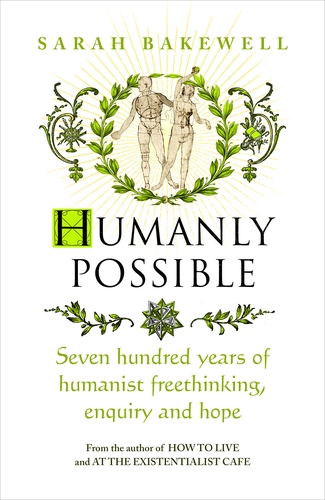
Sarah Bakewell is what you might call a non-organised humanist. That is not to say she is disorganised (far from it), but that she has developed her conception of humanism individually, over many years and to a large extent independently of the official humanist ‘movement’. Her previous books include a biography of Montaigne, a narrative study of Sartre and the existentialists, and two ‘true stories’ of eighteenth and nineteenth-century adventurers.
Bakewell’s latest book, Humanly Possible: Seven Hundred Years of Humanist Freethinking, Enquiry and Hope, published by Chatto & Windus in March, represents her attempt to synthesise at least three distinct ‘humanist’ trends of thought that emerged, primarily in Europe, between the fourteenth and the twentieth centuries: the literary culture of Petrarch and the Renaissance umanisti; the philosophical humanism of Voltaire and the Enlightenment; and the expressly non-religious, scientifically inclined humanism of figures like TH Huxley and those involved in early organised humanism.
Humanly Possible has already attracted attention. Bakewell has been profiled by the New York Times; her book has been reviewed by the philosopher Julian Baggini and Rowan Williams, the former Archbishop of Canterbury, and featured on BBC Radio 4. She also gave this year’s Rosalind Franklin lecture, held annually by Humanists UK, on the topic of humanist women.
I interviewed Sarah Bakewell in the British Library. Over a cup of tea, we explored some of her ideas in depth – from the relationship between humanistic and scientific humanisms to how to find meaning without religion.
~ Emma Park, Editor
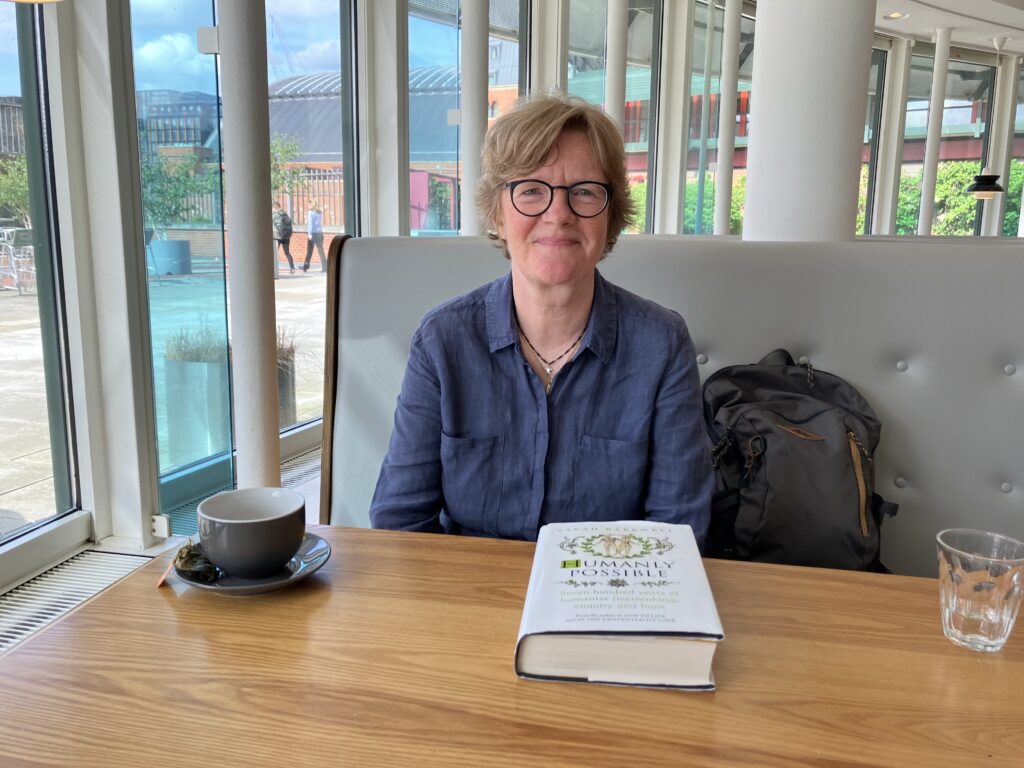
Freethinker: How does Humanly Possible relate to your previous books, as well as to your own intellectual development?
Sarah Bakewell: It definitely grew out of the previous two books. The spark was thinking about Montaigne as a humanist, and what role the humanist tradition played in his education and his attitude, but also how he rebelled against and reinvented it, and was much less reverent towards it compared to other people of his father’s generation. And humanism was connected with existentialism: Jean Paul Sartre famously gave a lecture after the end of the Second World War, saying that ‘existentialism is a humanism’ – then he kept changing his mind about it.
I also wanted to understand more about the connections between the different forms of humanism and their development in different eras and contexts. Thirdly, it was about what humanism meant to me. I have always been a humanist, although for years I did not use the label.
Are there any translations in the pipeline?
Yes. There are a dozen or so on their way, including German, Italian, French, and two Chinese editions – one for Taiwan and one for China.
Will the one for China be censored?
One publisher, who I did not go with in the end, said that any mention of religion would need to be cut, which is strange in a book about humanism. It was different compared to the last book, where none of this came up. I think there has been a shift in how much publishers feel they have to self-censor. But there were certain compromises that I would not and did not make.
Was religion a part of your life growing up?
No. My background was absolutely atheist. My parents were non-religious. My father was brought up as a Baptist and he rebelled against that when he was a teenager, and had the whole church praying for his soul as a result. My mother was never a believer. So I was lucky in that I did not have to go through that painful, challenging process of rejecting what you have been brought up with. My grandmother, the Baptist one, did hope that she might be able to get me interested in religion. She sent me a children’s pictorial Bible, which I loved because it had great stories, like fairy tales, with beautiful illustrations. But I never took it literally.
Would you now consider yourself agnostic, atheist or something else?
Theoretically, I am inclined to say agnostic, simply because you cannot prove a negative. But I am more of an atheist by personal conviction. There are parts of what institutional religion does that appal me. But there are parts that I respect, because religious activity is a form of human activity and artistic creation. I enjoy going into churches, and even reading religious books sometimes. I love the beauty that can be found in religious traditions.
But for me, the real beauty comes from contemplating the universe, what we know about it and what we might still discover, the scale of what we see in the night sky and how it might all work. The desire to find out more about the universe inspires me much more than religious traditions.
When did you first start using the label ‘humanist’ for yourself?
About 15 years ago. Definitely before I started writing this book. I have never been much of a joiner of organisations, but I did join Humanists UK when I started writing it. Labels are not something I usually feel very drawn to using. I think that might be true of many humanists, who by disposition want something subtler and more individual.
How much of your research was in the UK and how much elsewhere?
A lot of it was in the British Library, where we are now sitting, as well as the Warburg Institute, the London Library and the Bishopsgate Institute. I spend a lot of time in Italy anyway [Bakewell’s wife, Simonetta Ficai-Veltroni, is Italian]. I did not do much research in Italian libraries, but I did try to find out more about the places where the humanists of the early modern era lived. Padua stands out, because it was important for university life and education, particularly in the history of medicine. Chapter 4 of the book is about medicine and humanism. In the medical university at Padua you can stand in the Anatomical Theatre [built in 1595] and imagine what it would have been like to be a medical student, seeing the anatomising of a body – a process which is of course so important for good medical education, and thus for better medicine, and thus for better human welfare.
Petrarch, who is the main character of Chapter 1, lived close to Padua towards the end of his life, and was involved with the university and the local community. I also visited Avignon, where Petrarch grew up, and Paris. I spent a few days in Chartres. The cathedral there has got nothing to do with humanism in the non-religious sense, but it had everything to do with the flowering of education and a proto-scholarly humanism that started there and in other French centres before it started in Italy. It gives you such a different perspective when you are in a place. I visited Basel, which was the closest Erasmus came came to having a home – in fact, he spent most of his time travelling around and said that ‘My home is wherever I keep my library.’ Which sums him up, really.
Your focus is primarily from fourteenth to late twentieth-century Europe. Why did you choose this period, and those specific starting and finishing points?
Petrarch marks the beginning of the self-consciously modern revival of classical learning in Europe. He saw himself as bringing the light back from the classical world and starting a moral as well as an intellectual revival. In that sense, he is often called the first humanist, so it seemed a sensible place to start. The story tends to focus mainly on Europe, with some reaching in other directions, particularly to America. That was deliberate, because I needed to impose some kind of structure, limit and coherence. The people involved were influenced by each other, read each other, and responded to each other’s work.
I thought about ending with a more substantial survey of where humanism is now. But this has already been written about by others, and it is still very much a live story, changing and developing. I did not think I could do it justice unless I had a large section on it. And I am more of a historian by temperament.
You read philosophy at university. It seems to me that you are a little ruthless with Plato and Aristotle, writing that they ‘were (in most respects) not very humanistic’, and preferring Democritus, a fragmentary Presocratic, and the obscure sophist Protagoras. What made you take this approach?
From the fragments that we have of Protagoras, he and Democritus were in many respects proto-humanists, in the tradition of materialist philosophy. There is one fragment of Protagoras which says, ‘as to the gods, I know nothing about them’. This and other Presocratic sources suggest that, because we cannot know anything about the gods, it is not worth spending time worrying about them. There is a similar tradition of materialism in ancient India.
Your book talks about Cicero’s idea of humane studies, including in his speech in defence of Archias, where he identifies a ‘common bond’ between the ‘arts that concern humanity’. How far are these ideas a starting point for Renaissance humanism?
The Ciceronian idea of the ‘human and literary studies’ is really at the foundation of Renaissance humanism. This interest in Cicero was kick-started by Petrarch, who really admired Cicero, although he did criticise him as well. But others came along after him who thought Cicero was an almost godlike figure and could not be questioned, and that his style in Latin should be imitated absolutely. There was a tension between the kind of humanists who were obsessed with classical models and the ones that were more questioning and critical.
You point out that Renaissance humanists like Petrarch were concerned about literary style even when writing in an emotional state or about distressing topics. Is this an idea that would be worth considering for modern humanists?
We still recognise the importance of speaking and writing in an articulate way, though it does not go under the name of eloquence any more. But sometimes we are suspicious of the veneer of polished speaking. There is the idea, which started with the Romantics, that beautiful words mean nothing, and just cover up authentic feelings. This idea was alien to the Renaissance humanists, who would have said that deep feeling should be communicated as powerfully as possible. They also took from classical literature the idea that real eloquence must always be allied to virtue, or goodness.
We seem to have a double standard. On the one hand, we – at least I – do not trust the likes of Boris Johnson, who uses Latin quotations elegantly and is educated in the tradition of eloquence and classical reference, without that necessarily being a reflection of goodness or honesty. On the other hand, we can also be judgemental about people who do not express themselves very fluently.
Among the people you mention in your ‘Acknowledgements’ is Andrew Copson, the CEO of Humanists UK. To what extent did you consult with him or any humanist organisations during your research and writing?
I talked to Andrew, who was very helpful, and to one or two other humanists. Almost as a matter of principle, though, I mainly worked with my own idea of what I wanted to write. I did not not want to feel that I was presenting a view of humanism that was officially sanctioned by humanist organisations. Although I did include Humanist International’s Declaration of Modern Humanism (2022) as an appendix.
Is there anything in the 2022 Declaration (the latest version of the Amsterdam Declaration of 1952) that you would disagree with or want to modify?
No. One change I agree with is the emphasis on the need for humanism to involve respect and concern for the rest of the natural world and for other species, not only for human beings. There is a misconception out there that humanism is the same thing as anthropocentrism and that it implies not caring about other species.
Why should humanists care about other species?
On the simplest level, because we cannot survive without them. We are of this planet, and woven into the biodiversity around us. The general humanist approach also involves a sense of responsibility for the impact we can have on the planet. We have considerable powers technologically and by sheer force of numbers; I think we need to own up to that responsibility.
You identify ‘freethinking, enquiry and hope’ as consistent aspects of humanism throughout your period of study. Why these three?
These three points apply to all the widely divergent forms of humanism that I discuss in the book – not just modern humanism of the secular or non-religious sort, but also the scholarly and literary humanism of the Renaissance and the philosophical interest in human well-being and dignity of the Enlightenment.
To what extent can we really talk about a single humanism running through all these different threads?
I tackle that in the opening pages of the book. It is there in the word: they are all practices or ways of thinking which have the human realm as the centre of their concern – whether culture, literature and the studies of the humanities, or human nature and well-being. And modern humanism involves a sense of morality and meaning that comes from human relationships and human concerns.
I mean ‘freethinking’ in the broadest sense of not taking anything on authority alone – whether that be the authority of religious institutions or political ones. ‘Enquiry’ is linked to that, but it involves asking questions and undertaking intellectual investigations in a more active sense – something many of the humanists did with gusto.
‘Hope’ is a little different. We cannot just be naïvely optimistic, but a humanist does have some sense that we can use our faculties and talents and our abilities to improve the well-being of other people and of other living things, to achieve a better politics, to solve our problems to as large an extent as we can. It was well summed up by Bertrand Russell, who features towards the end of the book precisely for what he said about the need to have hope in ourselves. Today, many people are in despair over the state of the world. But I think that losing hope is an abdication of responsibility and also risks being a self-fulfilling prophecy. We have to have some sense that we are capable of using our best abilities constructively.
Your book focuses primarily on individuals who were humanist in different ways. Was your choice of characters a personal one, or were you influenced by other accounts of humanism?
I was influenced by who I was interested in and who had something new to contribute. I tried to ensure that everybody that features in the book advances the story in some way, or stands for a wider process. I did not want to write a reference book merely listing lots of names, but something that was fun to read.
You use photographs to illustrate some of your main characters. Where did you find them, and why did you decide to add this pictorial element?
I took many of them from picture libraries. I wanted to have images to make it easier on the eye, but I did not want it to be just portraits. I tried to choose images that were a bit different or unexpected. In a few cases, there are contemporary political cartoons of people, rather than portraits, and in other cases, pictures of title pages or manuscripts that illuminate the text in some way.
Did you make any surprising discoveries during the course of your research?
There were a lot of things that were surprising to me, because when I write books, I find out a lot as I go along. I think that is more fun for the reader too, because we are going along together. Some of the characters were more interesting than I expected them to be – for example, Matthew Arnold, who wrote Culture and Anarchy, which I had had on my shelves for years but never read because I thought it would be boring. He is conservative and Victorian sometimes, but his writing is interesting, and he is endearing and enjoyable from a humanist point of view – I warmed to him. Wilhelm von Humboldt is another character who was full of surprises, not least his kinky fantasy life.
Your book discusses the debate Matthew Arnold had with TH Huxley about the relative importance of the humanities and literary studies versus the sciences. In 1959, CP Snow revived this debate with his Rede lecture on the ‘two cultures’. These days, it seems, if anything, too easy for scientists to take pot shots at the humanities for their irrelevance, lack of rigour or stagnation in the morass of literary theory. How far can the literary and scientific approaches to life, or more specifically literary and scientific humanism, be reconciled?
The clue to it is, again, in that idea of human studies. The universe is physical; we are physical beings. Some people would see that as invalidating all of the ‘human studies’ or humanities, as if they are somehow irrelevant because they do not correspond to how the universe is. But human studies are not irrelevant to us, because we are human beings. We are social and cultural by our nature, and so the human realm is enormously interesting to us. It is the sea in which we swim all the time – it is language, culture, communication, society, politics. The two cultures are connected, I think, not contradictory.
You say you like contemplating the universe. This reminds me of Kant’s idea of sublimity: ‘the starry heavens above me and the moral law within me’. Is there an argument that the scientific perspective is fundamentally inhuman because its focus is on the very big and the very small, on the objective and not the subjective human experience? Isn’t the human, from the scientific point of view, just a collection of processes or cells or atoms?
Yes, but the paradox is that the science that we do, the ability to visualise and study the very large or the very small, is a human activity. There is no getting away from the human, for us. One of the things that is fascinating about science as a human activity is that it does try to set aside human preconceptions, perspectives, prejudices, and to work from the evidence – and that is a truly impressive thing to do. But even that – working out scientific methods, testing hypotheses, looking for falsifications and evidence – is still a human activity.
At the end of the book, you briefly mention posthumanism and transhumanism. How might the development of technologies like artificial intelligence affect humanism, and what it means to be a human, in the future?
This is a difficult question, because we do not know where we are going and things are moving very fast. We are already closely integrated with our technology, and are likely to be ever more so. Is there a line that we would one day cross, when we would no longer be the same? Have we crossed it already? I do not know the answer to that because it is all developing under our noses. I am wary of simplistic answers as to whether there will always be some human ‘essence’. I really do not know.
Your book was published in March this year, and you have said elsewhere that you spent about six years writing it. Those years were also a very eventful period in Britain. Did the turbulent political atmosphere have an effect on your book?
It was quite dramatic because I started working on it in early 2016, and then Brexit happened, and Trump. Since then, there have been all sorts of further blows to our sense of confidence in human common sense, if you like. I tried to keep reminding myself of what Bertrand Russell and others have said, that the greater the challenge to our sense of hope in ourselves, the more we actually need that hope – and the more we need a sense of faith in ourselves and in our processes, in our better political institutions, legal protections, free press, and the ability to talk openly about issues and to establish effective media of communication between countries. Altogether, we need more of our good qualities rather than just giving up on them.
Bertrand Russell [1872-1970] also experienced growing up in a hopeful time and then having to realise that things would not always simply get better and better. That is not how human history has ever gone. There will always be complications, steps backwards, obstacles and wrong moves, but it is wiser to expect that and not to be naïvely optimistic. And, as always, it is up to us. If things are going to be even a bit better in this world, we are going to have to do it.
Does the humanist have a natural political stance? Or should humanists today subscribe to any particular political views about anything?
No. I do not think there is any inevitable connection with any particular political viewpoint. In the nineteenth century, Humboldt and Mill were classical liberals, but Matthew Arnold, whose views about culture and education had much in common with theirs, was a small ‘c’ conservative. I am more interested in how the humanist dimension works with various political positions.
Where would you put yourself on the political spectrum?
I would say I am a humanist liberal.
Does the humanist today have a moral obligation to be involved in any sort of political campaigning or activism, or can they live a quiet life?
Personally, I live a fairly quiet life – I am not a political activist. That is just me. So I have to say that it is not necessary to be politically active in order to be a humanist! But looking through history, a lot of humanists were politically active, or became so. Bertrand Russell, for example, started as a scholarly logician, mathematician and philosopher, but was politicised by the First World War and decided from then on to write political material as well, and campaign for political causes. Renaissance humanists were often engaged with the politics of their city and their environment. Humanists are often drawn to political activity because it goes with the idea that it is up to us to make the world that we want to have.
You emphasise the importance of freethinking and enquiry to humanism – which leads naturally to the question of how important you think free speech is today, and where you would draw the line. How far should free enquiry go?
I am drawn to the free speech end of that continuum: I think things should be talked about. If we are ever going to say that something should not be talked about, we had better give a very good reason why not. There are certain things that disturb me when I hear them said, but I am not sure that the best method of stopping people from saying them is just to silence them. I would want to ask why people might be saying those things, what that implies about us as a society, and where we should go from there.
Your book is full of references to happiness, human fulfilment, and the need for connections between people. Is writing a way in which you make connections?
There is a relationship with the reader. But part of the nature of writing is that you do not know what everybody who reads it thinks or wants to say back to you. I think that is as it should be. It is nice to hear back from readers, but that is not the primary reason why I write. It is a way of discovering things for myself as I go along, and taking other readers with me. It is like walking along a path together, but without knowing who the readers are – that is part of the appeal. I like the idea that people could make something out of the book that I would never dream of.
A recurring motif in the book is the idea that humanists can, in a sense, live on in their writings after they are dead. Is this also a motivation for you?
No. Most of the things that any individual does gradually fade away out of view after they are dead. Even those we think of as timeless classics – Plato and Aristotle and Protagoras – it is too early to say whether they are all going to endure. They became fragments. There would be an egocentric arrogance in thinking that somehow your words are going to live on. But I do spend a lot of time pottering around in second-hand bookshops and libraries and picking up obscure and forgotten books from a hundred years ago or more. I love the idea of reading something that has not survived in more than a few copies, and yet finding the voice of the author still talking to you.
You talk about hope as an ingredient of humanism. In the very long term, of course, the earth will probably be swallowed by the sun, and the human race may well have died out long before then. Where can humanists find hope, given that, on a cosmic scale, we are, by all appearances, so fundamentally meaningless?
On that scale, I do think we are completely meaningless and forgettable, as is everything to do with this planet and the very fact that we have existed at all. But we have got much more immediate things to worry about, and we could find ourselves disappearing a lot sooner than that. We are still a very young species – dinosaurs were around for an enormously longer time than we have been. Also I do not believe in God, so even if I wanted to find meaning there, that is not an option. Would I be happier if I had this great sense of meaning? No, because to me it would not be a genuine source of meaning. Actually, I find it exhilarating to think about the size of the universe. The fact that we are tiny does not bother me.
Final question: what is your next project?
I have not got one yet. I am having a little interlude to see what might arise next. And even if I did have one, like most writers, I probably would not want to talk about it.
Humanly Possible: Seven Hundred Years of Humanist Freethinking, Enquiry and Hope, by Sarah Bakewell, was published on 30 March 2023 by Chatto & Windus.
Enjoy this article? Subscribe to our free fortnightly newsletter for the latest updates on freethought.


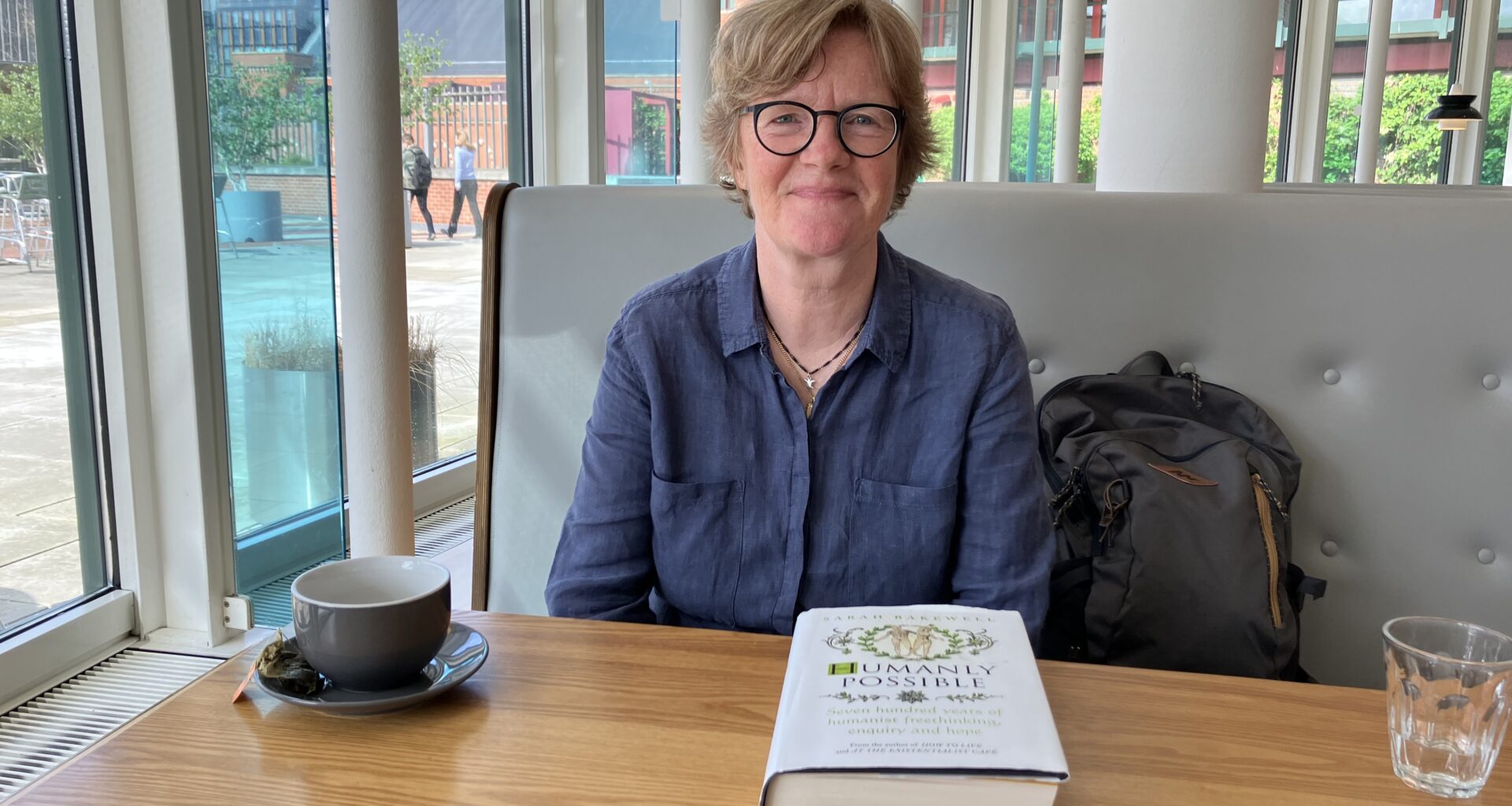
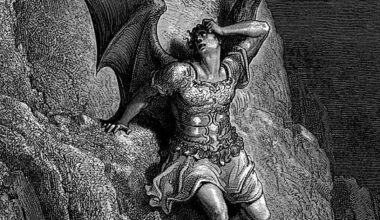

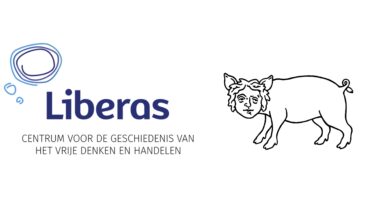
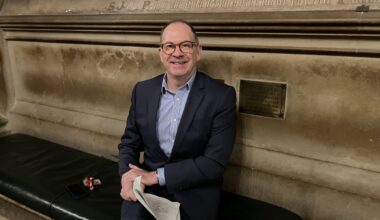
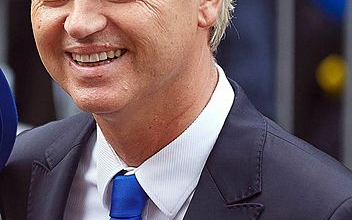
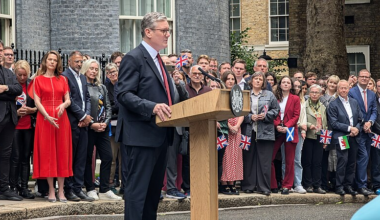
2 comments
A wonderful book Sarah and another important contribution to the humanist/freethought intellectual tradition and to laying the ghost that suggests the religious are ethically and morally superior to us benighted unbelievers.
I’m not sure I can share your understanding of a distinction between atheism and agnosticism. As the founder of this journal G.W. Foote put it, ‘agnosticism is atheism with a top hat’. Anyway, I dislike these ‘a’ words. I want to be defined by what I am, not by what I’m not. Your book helps with that. I’m a proud freethinker and probably a humanist too. Well, most of the time anyway.
Wow 700 years and here was me thinking that the term Humianism was a relatively new concept. I have always thought of humanism in a relatively western English speaking way (with possibly the exception of the French) and it is encouraging to see that the Germans, Italians and Chinese are looking to get hold of translations of the book.
I thought Sarah’s comments on religion as part of a human activity resonated with me, as I too marvel at some of the beauty in religious buildings and traditions. I too also think that the universe and the many unanswered questions are much more awe inspiring than religion.
The mention of Boris Johnson and his ability to quote Latin elegantly and the fact that he cannot necessarily be trusted made me smile.
I thought that the part on changing the definition of humanism to involve respect for the rest of the natural world and for other species was something that I could buy into given that we cannot survive without them.
There was also a nice uplifting tone relating to hope over despair. Appeals to the optimistic side of me, although hopefully not too naively optimistic (see later in the article)
My favourite line was “I am wary of simplistic answers….” as this chimes with my thoughts on the essence of life.
Your email address will not be published. Comments are subject to our Community Guidelines. Required fields are marked *
Donate